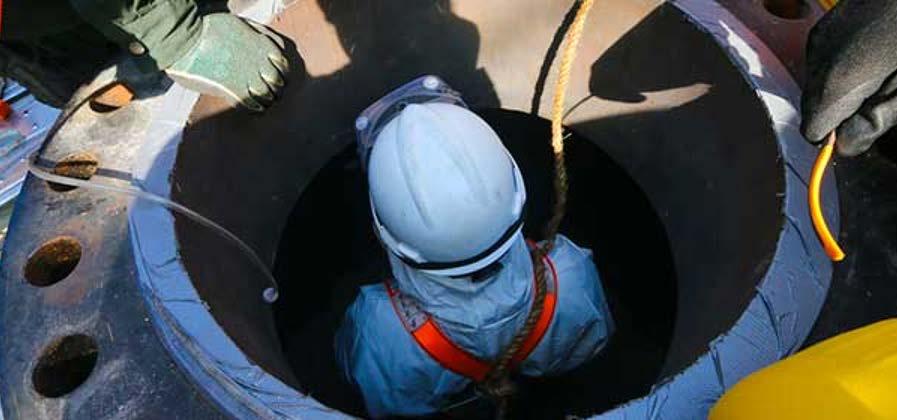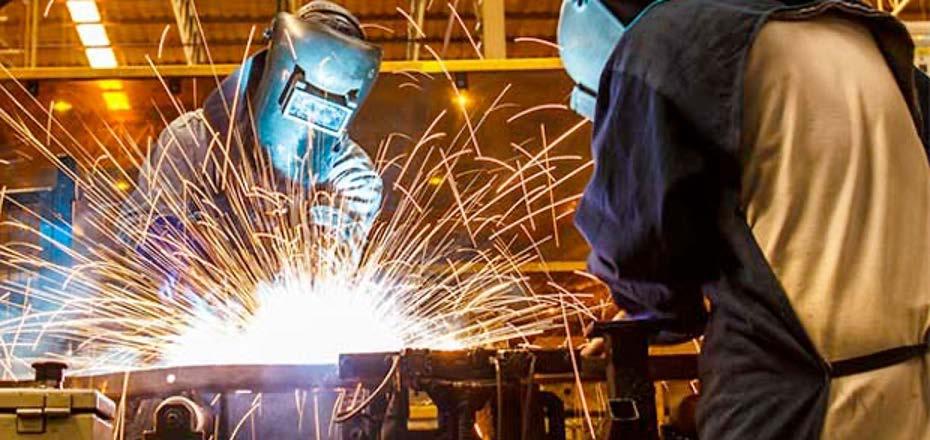Covering the Bases Welding PPE from Head to Toe OH&S | 04.01.2020 By Amanda Smiley, Sydny Shepard When it comes to defending against the hazards faced by
specific to their daily tasks, including: exposure to fumes
welders every day, you must incorporate protective gear
and gases, burns, eye damage, crushed digits, electric
from head to toe.
shock, fire—and even explosions. Let’s take a deep dive
The concept of welding is not new—people have been
into each of these hazards.
merging metals together using a plethora of techniques
Physical Hazards. Cuts, eye damage, burns, crushed
since the 1880s. While technology and protective gear has
toes and fingers are all physical hazards that are often
dramatically improved since then, there are still numerous
associated with welding. Injuries that result from this hazard
hazards those in the field need to defend against.
are often due to insufficient personal protective equipment.
In fact, OSHA reports1 some notable hazards for the
Exposure to Fumes and Gases. Fumes and gases created in
welding, cutting and brazing sectors that might give you
the welding process can cause severe health problems for
pause. An estimated 562,000 employees are at risk for
welders as they are classified carcinogens. Overexposure to
exposure to chemical and physical hazards of welding,
these fumes could lead to respiratory illnesses, cancer and
cutting and brazing. According to the Bureau of Labor
impaired speech and movement.
Statistics, more than 500,000 workers are injured every year2 due to welding accidents. The risk of fatal injury to welders is higher than four deaths per 1,000 over a career.
Fire and Explosions. When welding, the arc creates extreme temperatures that may reach up to 10,000 degrees Fahrenheit and can spark and spatter up to 35 feet away.
With stats like these, it’s more obvious than ever that
This extreme heat could cause injury to the welder and the
employers must work with their employees who spend
arc spark could catch flammable material on fire in the
time welding to understand the hazards they face, protect
workspace if not properly cleared out.
against them and plan for every emergency situation that may arise.
COMMON WELDING SAFETY HAZARDS Today, nearly half a million welders are working every day with an increased risk of injury due to hazards that are
Electric Shock. The most significant threat to a welder is electrocution. The sudden discharge of electricity to the body can cause serious injury and even death. Injuries can result from the shock itself, or a fall caused by the reaction to the shock.
8







